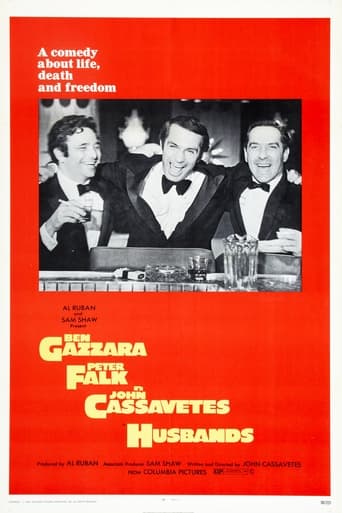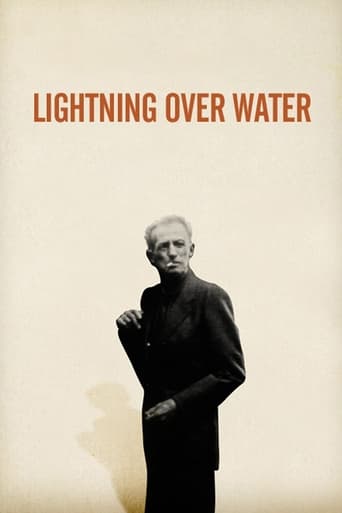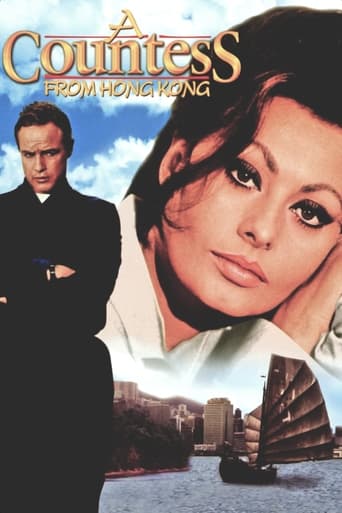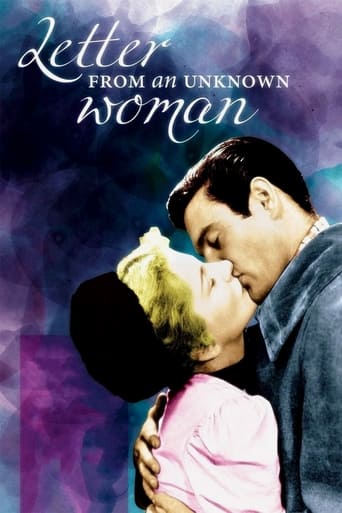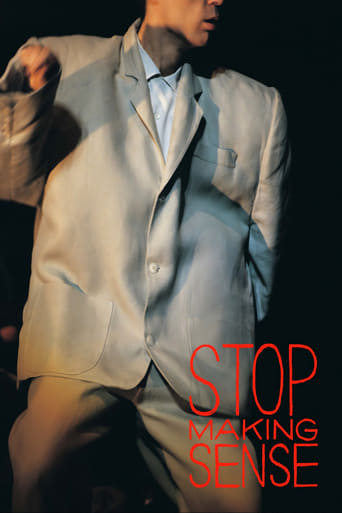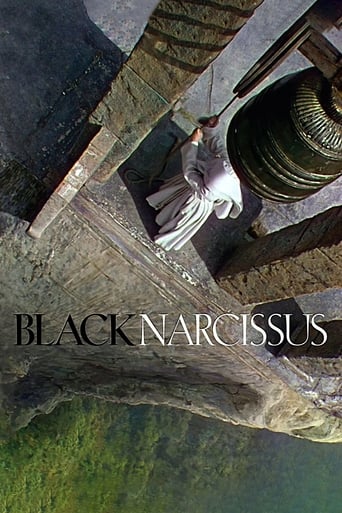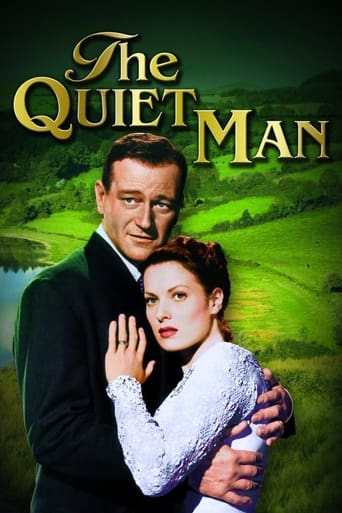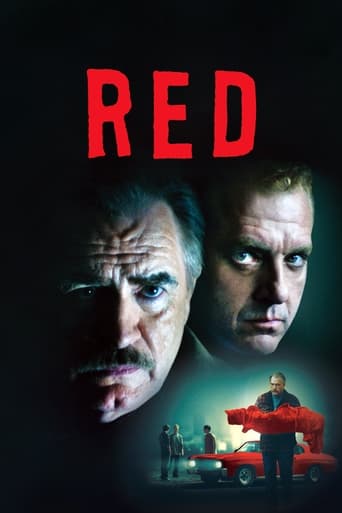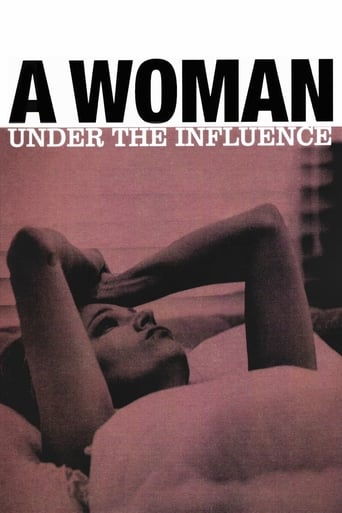


Faces
Middle-aged suburban husband Richard abruptly tells his wife, Maria, that he wants a divorce. As Richard takes up with a younger woman, Maria enjoys a night on the town with her friends and meets a younger man. As the couple and those around them confront a seemingly futile search for what they've lost -- love, excitement, passion -- this classic American independent film explores themes of aging and alienation.
-
- Cast:
- John Marley , Gena Rowlands , Lynn Carlin , Fred Draper , Seymour Cassel , Val Avery , Dorothy Gulliver


Similar titles
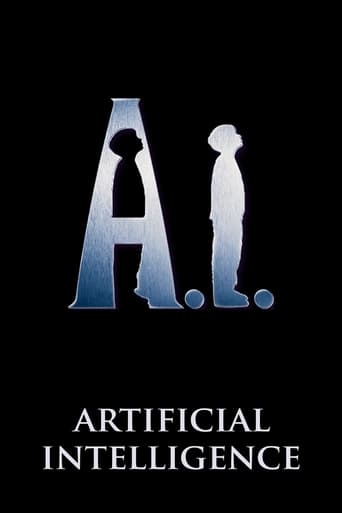
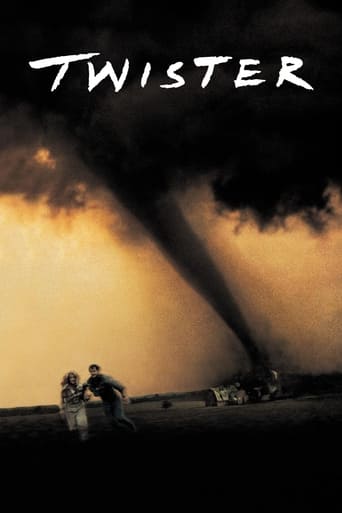




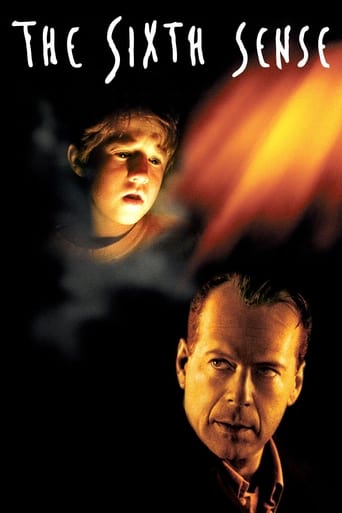

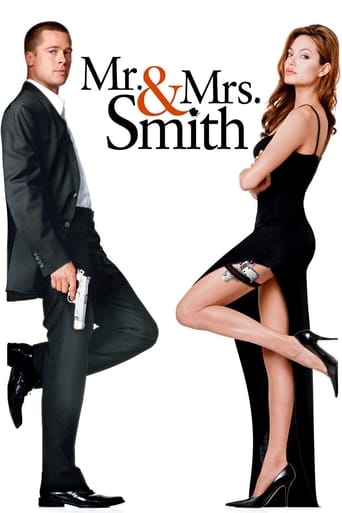

Reviews
The Worst Film Ever
Absolutely amazing
Pretty good movie overall. First half was nothing special but it got better as it went along.
I think this is a new genre that they're all sort of working their way through it and haven't got all the kinks worked out yet but it's a genre that works for me.
The sanctity of Marriage just got a shock thorough it's veins. John Casssavates's film "Faces" is a heartbreaking, urgent, real journey through the darkest realms of adultery. Cassavetes must be a traditionalist when it comes to marriage, because he makes this seem like a cautionary tale. A sense of how depression, lust and exploration outside of marriage could lead to vile, uncertain consequences. This movie is absolutely beautiful, and it's earned a spot on my list of the best films that I have ever seen. As grim as this movie is, it captures absolute desperation like few movies have ever did. The characters, Richard and Maria Frost are seen dipping their toes into the lustful life of mistresses and swinging. Not only do they want to mess around between the sheets with a dirty concubine, but they want to experience the love that they never found in each other, and rekindle the times of their youth. In both sections of their escapades, they dance and sing with their mistresses, and just laugh the night away with the swinging cohorts. Each scene lasts about 20 minutes a piece, and examine the surreal experience closely, almost like a stage play would have it. These scenes exist to also make note of the fantastic performances between every character on screen, and they shine brightly. Gena Rowlands's character of the mistress is seen as capitulating to the every fantasy of the men she fools around with, while at the same time losing her dignity and self-respect with every time the men fight for her attention. The character of Maria's concubine, Chet, on the other hand, is a commanding and brooding performance. We see him as a man who wants to take control of multiple women, and seemingly unprepared when his lust almost kills Maria after he lets her overdose on sleeping pills. That scene in particular is the greatest in the entire movie, as it beautifully shows the lowest point in Maria's life. How did she go from a lovely housewife to being unconscious in her own home, and a creepy man slaps her silly and chokes her violently in order to bring her back to life? Cassavetes plays up the ridiculousness of the situation, in order to shock us and make us think. The feeling of the entire picture was disorienting and just plain wrong in every aspect. The couple seemed way over their heads the entire time, and it what also seemed like a life or death situation. Every person in the rooms seemed to be on the verge of screaming, or crying or dying. The tension here is so fierce, you could cut it with a butter knife. Again, I focus on the acting, because that is where the film shines the brightest. It is pitch perfect. The cinematography is world's better here than it was in "Shadows", and it gives us the opportunity to explore the spaces that they live in. For example, the scene in which Richard comes home and eats dinner is filmed tensely, with shots that carefully and seamlessly follow his every move through the house and around his own wife. I know that there were clear cuts, but I simply didn't notice them. Everything seemed to be going in real time, and the performances helped make that time seem genuine. Each situation and scene had a build up period that was so frighteningly real. Emotions just build throughout all of the scenes. John Cassavetes proves here more than ever that he is the master and true father of the independent cinema movement, by making a film so profound in nature, without having any big money and sets to work around. In fact, here, he captures much more than any Hollywood film is willing to capture. Cassavetes was always a Hollywood golden boy, but I think that he should've just walked entirely away, and kept making incredible films. I am now reminded of how amazing it was to meet his son, Nick, at the Syracuse International Film Festival. I know now how important it was for us to see him, and how the Cassavetes name helps us as filmmakers in the end.
The American Dream, from the '60s standpoint, was supposed to be a fantasy lived by Lucy and Ethel and the Bradys. But "Life", "Vanity Fair", and "Photoplay" tended to stretch the truth for the sake of eye catching imagery, all red lipstick, picnic baskets, Ford convertibles, and not much else. And while Debbie Reynolds and Dick Van Dyke told us how we should be looking, acting, feeling, the rest of the world shifted in its mindset, going from years of repression to a sudden soul searching state of disillusion, increasingly thrown off course by the sexual revolution, Vietnam, and Watergate. I'm sure some of the period's population was decently happy, but a time of changed attitudes and values can only lead sights and sounds into places unexplored before, unsatisfying at their revelatory peaks."Faces", a defining film in the astonishing breadth of the daring '60s, grabs The American Dream by its lapels and throws its ideals down a life-sized paper shredder, screaming in our faces that Doris Day and her well-off friends lied — adorable romantic misunderstandings and colorful lifestyles is not the America America knows. It's just a drippingly chintzy version of one. So with its grainy, 16 mm black-and-white, emotive actors, and innate directorial style (courtesy of auteur John Cassavetes), "Faces" is one of the few films that convincingly captures the hardships that lacerate everyday life, placing each and every one of its characters at the center of a crisis and watching, unsparingly, how they handle it.Following the disintegration of a fourteen year marriage over the course of a series of drunken nights, "Faces" examines Richard (John Marley) and Maria Forst (Lynn Carlin) as they attempt to navigate their loose vulnerabilities after Richard suddenly announces he wants a divorce. The proclamation makes perfect sense to Richard — he's been cheating on his wife for years (the film opens with a boozy get-together that sees him and his friend entertaining a couple of prostitutes) — but the exclamation nearly tears Maria in half. Though she's been unhappy for far too long, there's an underlying feeling that she really does love her husband, and while the union has run its course, she doesn't want to be alone in this cold, cruel world.They spend the next few nights figuring out what's going to become of them, growing increasingly depressed and increasingly retrospective, pensive. Richard busies himself attempting to shack up with a hooker without a heart of gold (Gena Rowlands), Maria fogging out her loneliness with her female friends, gradually meeting a hippie (Seymour Cassel) well-meaning but damaging in his unrelenting positivity. By the end of the film, the Forsts don't find themselves freed by their lack of marital responsibility — hanging over their heads is a question mark drenched in sleeping pills and liquor, wondering aloud if all there is to look forward to in life is misery."Faces" isn't the kind of film made for the pure sake of enjoyment — most, including me, would much prefer to sit through a two-hour Bond adventure than a depressing, jarringly styled character piece — but its blunt truthfulness and knee-jerking performances make it a tour-de-force rewarding in its mesmerizing account of a world more authentic in its bare bones anguish than most. Never has Cassavetes settled for anything less than honest, so it's only fitting that the majority of his films throw his characters into a pit of chaos and sees where they land. In his most famous moment, "A Woman Under the Influence", he details the dissolve of a housewife's psyche, taking her marriage down with her; in "Love Streams", he throws curveball after curveball at characters so lost in a maze of depression that it's only reasonable to predict that they'll never make their way out."Faces" is the movie that first bolded and underlined his filmmaking style, pulling out massive emotional punches and drawing out visceral performances from his stock of actors. His movie-making instincts are difficult to love at first glance — but after getting to know the situation and the people, the shaky camera, documentary-like, heightens the gutsiness of it all, adding to the dire circumstances that befall nearly every scene. As we analyze the ensemble of "Faces", split in half most of the time, a sense of impending doom slithers along the cracks of the ceiling. None of these characters are stable, so much so that we can only ponder if they will die naturally or if they will inflict wounds upon themselves to make their demise come quicker. The women of the film, Rowlands and Carlin, cover their sorrows with fake laughs and unconvincing smiles; Rowlands makes the case that her character has always been that way — she plays a prostitute, therefore used to irrepressible gloom — but Carlin goes on a downward spiral resembling Monica Vitti's mental deterioration in "Red Desert", absorbing but absolutely gut wrenching. The men, Marley and Cassel, seem more in control: but it quickly becomes apparent that their masculinity can only cover so much ground before their weaknesses begin to present themselves loudly.At 147 minutes, "Faces" is demanding to sit through, sometimes tedious. But, like in all of Cassavetes' movies, there is so much depth to the lack of glamour that we're left torn up, perhaps longer than we'd like to admit. Because the Technicolor world isn't real — the 16 mm one is, and it's hard to accept.
All we have here is Cassavetes' name to draw us into this hopeless waste of someone's production money. I've never understood the Cassavetes directorial style (expression of his intense anger), nor the masochism of his film audiences. This is a typical Cassavetes product - characters are in-your-face loud, crass, and shallow (again: reflecting the director's personality). Overly theatrical "performances", abrupt, artificial mood changes, and hysterical, mindless, irritating laughter. Misogynistic, forced humor. Good camera work but poor sound and lighting. One would be seriously deluded to consider this art. Throughout the film you will feel uncomfortable, and ask yourself, "Why am I watching this?"
This was a marvelous movie to watch. It is so intelligent and informed most of the time, it is hard to believe there were improvisations by Cassevetes and company.Although themes such as those which the movie revolves around were already then considered Bergmanesque, the movie evokes the spirit of other great non-Hollywood directors of the era: Fellini and Antoninoni. Still it retains its integrity and is rather unique. I think that it is a very impressive film even today. Puts many to shame.NSFC did the right thing in awarding the film with Screenplay and Supporting Actor honors. Oscars on the other hands were not so generous. It did not get a nod for best picture nor did Cassevetes for best directors. What a shame! Since Stanley KUbrick's 2001 A Space Odyssey was snubbed the same year, making it a double debacle.

